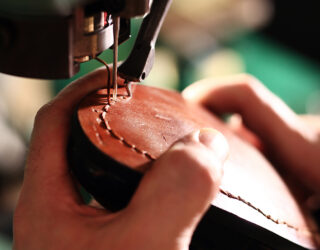The fact that some jurisdictions provide a grace period during which, before the patent application is filed, the inventor can disclose the invention without any limitation with respect to the form or purpose of the disclosure and without this preventing the registration of the patent, as opposed to jurisdictions in the EPC system that do not envisage this possibility, can make it difficult to adopt global strategies for the protection of inventions.
Under the European Patent Convention (EPC) and national patent regulations in the countries that adhere to the Convention, which include Spain, an invention is patentable if it fulfills, among other requirements, the inventive step requirement (article 54(1), (2) EPC and article 4(1) of Patents Law 24/2015).
That is, an invention is new if it does not form part of the state of the art before the date of filing of the application, or, in other words, if the invention is not made available to the public before the filing date of the patent.
There are only two exceptions to this rule, the so-called “non-prejudicial disclosures”, namely, prior disclosures that do not affect the patentability of the invention. Prejudicial disclosures are those that take place in the six months preceding the filing date of the European patent application due to an evident abuse in relation to the applicant or his legal predecessor or the fact that the applicant or his legal predecessor has displayed the invention at an official, or officially recognized, international exhibition (article 55 EPC and article 7 of Spanish Patents Law 24/2015).
Outside those scenarios, the innovation, results of the research or technological developments cannot be published before the filing date of the patent application, not even by the actual inventor. This means for example, that researchers cannot publish scientific reports, or that businesses cannot make prior disclosures with a view to testing products in the market or even in order to find investors, since this would invalidate the possibility of obtaining patent protection for the invention.
This rule may also represent a handicap for European patent applicants and national patent applicants in the countries that adhere to the EPC, especially given that in many foreign countries, patent legislation establishes an additional measure, the so-called “grace period”, which facilitates the prior disclosure of inventions when it is the inventor who is carrying out the disclosure, without this affecting the possibility of subsequently obtain a patent registration for the disclosed invention.
The grace period is the period of time prior to the filing date of a patent application, usually ranging from 6 to 12 months, during which an inventor can disclose the invention without limitation with respect to the form or purpose of the disclosure and without this preventing the possibility of obtaining the patent after 6 to 12 months.
In Spain, before the entry into force of the current Patent Law 24/2015, on April 1, 2017, a grace period did exist, albeit limited to the trials carried out by the applicant or his legal predecessor that did not involve exploitation or the commercial offering of the invention. However, this was eliminated with the entry into force of the new law. The reason for eliminating this rule was based on the absence of a similar exception in European comparative law, on the understanding that it could adversely affect the novelty of the invention, if the aim was to extend protection to countries that do not recognize the grace period.
At present, researchers and companies in countries such as the United States, Japan, Korea, Canada and Brazil, can benefit from the grace period, whereas applicants in countries that form part of EPC cannot. It is curious to say the least, that an applicant can carry out a prior disclosure under the grace period and obtain protection for a patent in the US, Australia, etc., yet cannot obtain a European patent on the same terms, precisely because of the prior disclosure.
This different concept in the patent systems makes it quite difficult for applicants, and, ultimately, for the businesses that exploit the patentable technology, to adopt a global, common strategy to protect and manage their industrial property in territories of high commercial importance.
In addition, it is advisable to bear in mind that the grace period is somewhat inconvenient for third parties that may be affected for a longer period of legal uncertainty: the patent application is published 18 months from the time it is filed, so from that time until publication, third parties are unaware of the existence of the application. With the introduction of a 12-month grace period prior to the patent application, the period during which the invention is not published is extended for a further 12 months. As a result, for 30 months, third parties are unaware of the existence of those patent rights. Logically, the longer the period of legal uncertainty, the greater the possibility of third parties unintentionally infringing that patent right.
Therefore, what does appear evident is that the introduction of a grace period should involve compensating the commercial advantages and flexibility in obtaining a patent right, vis-à-vis the legal uncertainty that this can cause to third parties.
It appears that the European Patent Office (EPO) is taking this matter up again. A study was published recently based on a broad survey of EPO applicants, complemented by user consultations and desk research of the matter, the main aim of which was to analyze the economic impact of introducing this grace period in the EPC.
Although the study does not aim to establish the preferences of users of the EPC system, it does seek to discover the current behavior of users of the system in relation to prior disclosures. Although, the conclusions of the study are not totally conclusive, they do provide interesting information:
- The absence of a grace period in the European system has a negative economic impact, especially on universities, public search institutions and SMEs, due to the higher incidence of non-patentable inventions due to prior disclosure.
- The fact that it is practically impossible for a patent system with a grace period (for example the US system) to coexist with a patent system without a grace period (EPC system), has a negative impact above all on non-European users of the EPC system, such as Americans, Koreans, etc. etc., due to the difficulty in adopting a global, common strategy to protect inventions.
- At present, only 6% of European applications under prosecution are affected in their grant procedure by prior disclosures, which confirms that European applications have managed to implement internal policies and procedures so as not to disclose their inventions before filing the patent application.
- Finally, as a last conclusion, the study indicated that the introduction of a grace period in the European system could give rise to substantial economic benefits through the exploitation of new patents that are not currently filed or which are not granted because of a prior disclosure.
In any event, this study will help to encourage debate on the issue and why not, perhaps in the future, to encourage some type of legislative change that manages to put the current disadvantageous situation on an equal footing with the advantages provided by the grace period in other territories. In the meantime, we recommend always avoiding disclosure before filing the patent application.






